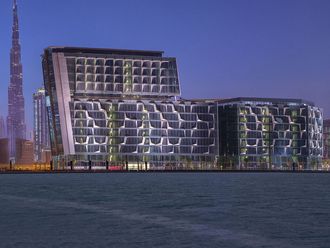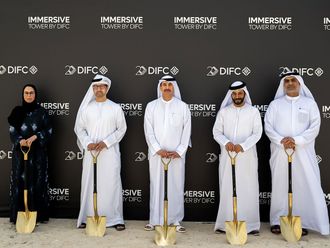
They would challenge any company that dared to enter areas well removed from its expertise, warning that it would end up diluting what it stood for.
That thinking may work for some, but can companies get away with remaining true to just one competency in the present market environment? Management at Omniyat Properties clearly doesn't think so.
The developer recently assumed responsibility for leasing directly to prospective tenants, especially for its commercial properties.
"Clients can benefit from the strength of our brand, professional information packages, better site tours and so on," says a Omniyat spokesperson. "If you come on board with us, you overcome the issue of facing several people advertising different rates and products. We usually encourage an integrated approach."
Going by available data, Omniyat is onto a good thing. This direct-to-client approach has worked well in the leasing programme for its One Business Bay office high-rise.
The spokesperson insists that Omniyat has got the hang of launching projects and seeing through rental programmes.
"We won't have conflicts down the line, we can pre-empt rental disputes," he says. "We have imposed a ceiling of five per cent on rental increase. Most are setting up their corporate head offices and want to be here for a three- to five-year period.
"On a five-year lease we've signed with a tenant, there will be a five per cent rental increase after the second year, another five per cent after the fourth year and a review of the market situation after the fifth year.
"The tenant has the choice to renew his contract after the fifth year. We have got a fair system [based on the Australia-Asia model] to sort any rental disputes in five years' time."
Omniyat will manage One Business Bay for the first year, and from the second year onwards will leave it to the owners' association to decide who should continue this role.
"There will be several strata management companies in the market by then," says the spokesperson.
Meanwhile, the remaining glut in office supply has not put Omniyat off its game. "With our asset management arm, we hope to pre-empt the oversupply by providing a superior service and doing it now," says the spokesperson. "From our research, we estimate that 40 million square feet of office space is going to come online by 2012, that's assuming 100 per cent will be completed.
"We know that won't be the case, as several projects are being cancelled. That's positive for the market to balance out the supply from a leasing point of view. Tenants need to fulfil their demand now," he adds.
"With the supply coming online, it would be naive to think that the market will adjust itself in six months."
Omniyat predicts that larger office units stand a much better chance of recovering values that were lost during the correction.
"For smaller units, there is an abundance of choice. The way the space is being presented to tenants is also very important because it makes a great difference," he adds.
"If you, as an owner, take the time to fit out your office to Category A standard, you will have a higher value in the market. Units in a basic fit-out stage will start to appreciate in value."
Optimising the value
"We've seen this in other markets, particularly in Sydney: when strata buildings are not run properly, tenants are affected. Owners need to be taken on board, there must be a professional organisation running the building from a strata point of view and using international best practices. As a tenant, I need service 24/7."
Omniyat spokesperson on how optimum value could be added to commercial freehold properties.











